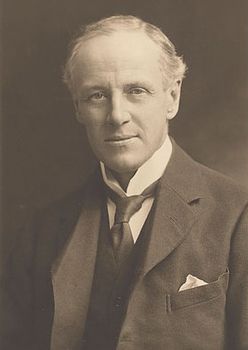Rowlatt Act
What is the Rowlatt Act?
The basic facts about the act and its significance:
● Officially known as the Anarchical and Revolutionary Crimes Act, 1919.
● Passed in March 1919 by the Imperial Legislative Council.
● This act authorised the British government to arrest anybody suspected of terrorist activities.
● It also authorised the government to detain such people arrested for up to 2 years without trial. It empowered the police to search for a place without a warrant.
● It also placed severe restrictions on the freedom of the press.
● The act was passed as per recommendations of the Rowlatt Committee chaired by a judge, Sir Sidney Rowlatt.

Sidney Rowlatt
● The act was widely condemned by Indian leaders and the public. The bills came to be known as ‘black bills’.
● The act was passed despite unanimous opposition from the Indian members of the council, all of whom resigned in protest. These included Mohammed Ali Jinnah, Madan Mohan Malviya and Mazhar Ul Haq.
● In response to this act, a nationwide hartal was called by Gandhiji on 6th April. This was called the Rowlatt Satyagraha.
● The movement was cancelled by Gandhiji when it was marred by rioting in some provinces, particularly in Punjab where the situation was grim.
● The British government’s primary intention was to repress the growing nationalist movement in the country.
● The British were also afraid of a Ghadarite revolution in Punjab and the rest of the country.
● Two popular Congress leaders Satya Pal and Saifuddin Kitchlew were arrested.
● Protest was very intense when the act came into effect and the army was called in Punjab to tackle the situation
Jallianwala Bagh Massacre
The situation in Punjab was alarming as there were riots and protests against the Rowlatt Act.
● Punjab was put under martial law which meant that it became unlawful for more than 4 people to assemble at a place.
● The Lieutenant-Governor of Punjab at that time was Michael O’Dwyer. Lord Chelmsford was India’s Viceroy.

● On the day of the festival of Baisakhi on 13th April 1919 in Jallianwala Bagh, a public garden in Amritsar, a crowd of non-violent protestors had gathered. Also among the crowd were pilgrims who had come to celebrate Baisakhi.
● General Dyer came there with his troops and blocked the only narrow entrance to the garden.
● Then, without warning, he ordered his troops to fire at the unarmed crowd which included children as well.
● The indiscriminate firing went on for about 10 minutes which resulted in the deaths of at least 1000 people and injured more than 1500 people.
● This tragedy came as a rude shock to Indians and totally destroyed their faith in the British system of justice.
● National leaders condemned the act and Dyer unequivocally. However, Dyer was appreciated by many in Britain and the British in India although some people in the British government were quick to criticise it.
● The government set up the Hunter Commission to inquire into the massacre. Although the commission condemned the act by Dyer, it did not impose any disciplinary action against him.
● He was relieved of his duties in the army in 1920.
● In protest against the massacre and the British failure to give due justice to the victims, Rabindranath Tagore gave up his knighthood and Gandhiji relinquished his title ‘Kaiser-e-hind’ bestowed on him by the British for his services during the Boer War in South Africa.
● Michael O’Dwyer, the then Lieutenant-Governor of Punjab, who had approved the actions of Brigadier-General Dyer, was assassinated by Udham Singh in London in 1940 as revenge against the massacre. Udham Singh is believed to have witnessed the massacre as a child.
Rowlatt Act
Anarchical and Revolutionary Crimes Act, 1919
Imperial Legislative Council
Jallianwala Bagh Massacre
Kaiser-e-hind
Gandhiji
Daily Current Affairs Quiz for UPSC Prelims | Get updated with the daily Currents Affairs to Crack the UPSC Prelims



